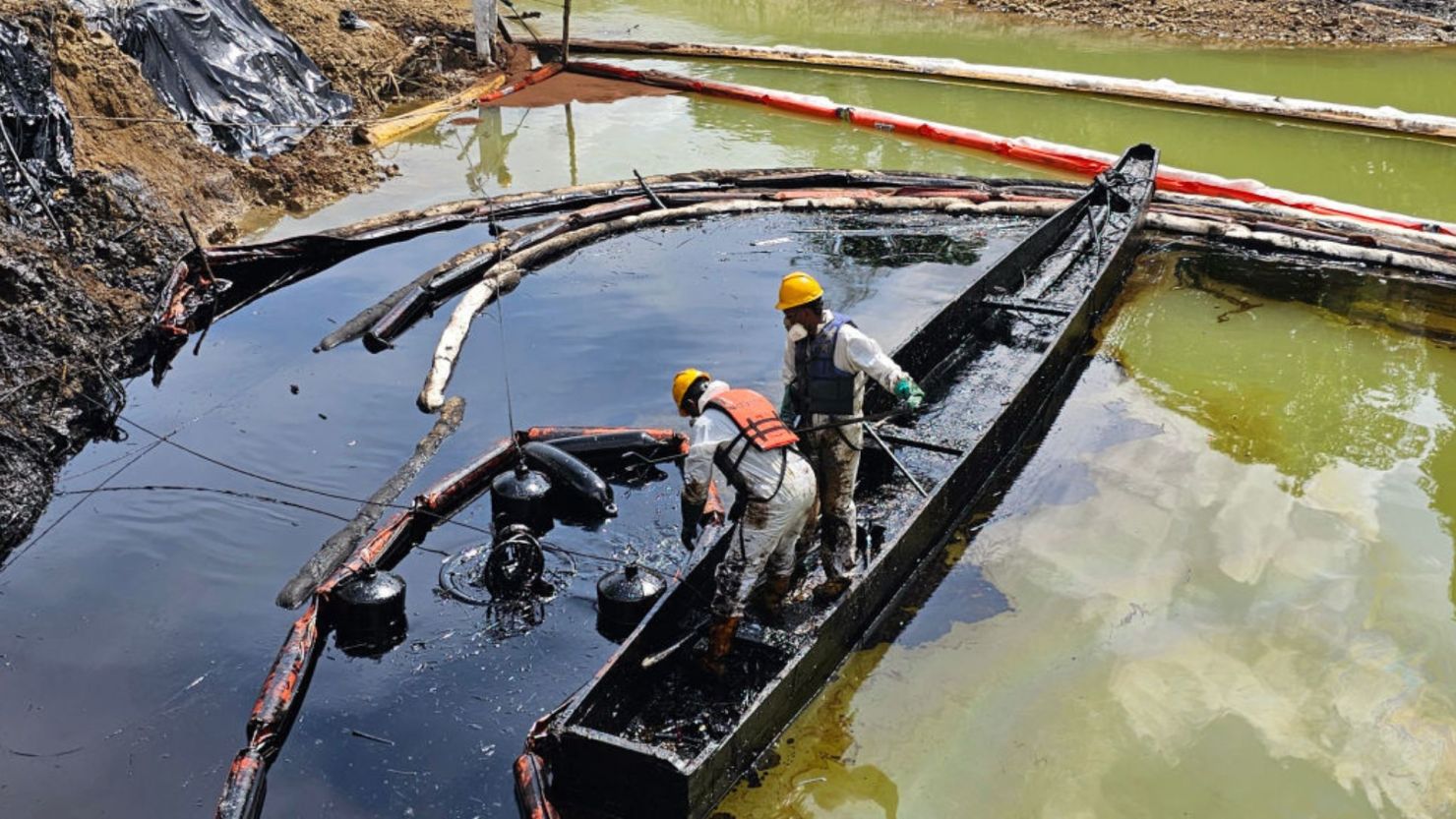Environmental Justice: the shared responsibility of those who live in cities, regarding Mother Earth Day
World Mother Earth Day, every April 22nd, invites us to reflect on how our actions impact our planet. But for many territories, especially those that are impoverished and racialized, it's not just a matter of reflection, but of survival. This year, in Ecuador, that date is marked by an unfortunate event: the spill of more than 25,000 barrels of oil in the province of Esmeraldas.
On March 13, 2025, a landslide caused the rupture of a 60-meter stretch of the Trans-Ecuadorian Pipeline System (SOTE), in the sector of El Vergel, Quinindé. The crude oil advanced for at least 30 minutes without any control by the competent authorities, contaminating at least three rivers (Caple, Viche and Esmeraldas), vital for thousands of people who depend on these waters for consumption, fishing and agriculture. Today, more than 80 kilometers of rivers are affected and, with them, entire Afro-descendant and indigenous ecosystems and communities that have been historically marginalized and excluded.
This fact is not an isolated one. It is a symptom of profound environmental injustice. While cities enjoy energy, transportation, plastic products and amenities, it is the peripheries—rural, marine-coastal areas and the Amazon—that bear the brunt of the impacts of the extractive model.

What is environmental justice?
Environmental justice recognizes that the ecological crisis is also an ethical, political and social crisis. It proposes to question a system that has treated nature and the peoples that inhabit those territories as disposable, when they are not. Environmental justice seeks balance between healthy communities and living ecosystems, based on reciprocal relationships and participatory governance.
In the words of the international movement for climate justice Movement Generation: this perspective makes it possible to identify the structural causes of the crisis: the disconnection between people and the Earth, and an extractive economy that prioritizes the profit of a few over the lives of the majority.
The Role of Demand and Shared Responsibility
For those of us who live in cities, it's easy to think that a tragedy that happens in Esmeraldas, thousands of kilometers away from the largest cities, are isolated cases far from our daily lives. However, there is a global demand that comes precisely from cities and that, finally, supports this chain. Oil is not only used to manufacture cars or factories, it is also transformed into single-use plastics that we consume every day. From packaging to textiles, our daily lives are steeped in hydrocarbons.
So what can I do? What can we do as a society?
From waste management in your home to organized pressure on governments to demand a just energy transition, as citizens we must get involved as political subjects.
At ReciVeci, we always invite you to think about the waste we generate and its end of cycle. Internalize the”3 R” proposed to us by the circular economy: reduce, reuse, and (what we definitely have to buy, that is possible) recycle. If we recycle, Let it be with basic recyclers (if you are in Ecuador, find them through ReciApp!).
If you have a company or work in an institution, remember that at ReciVeci we can support you from the ecodesign of packaging and packaging, to the creation of returnability and recycling strategies with social and technological innovation. Find out more here.
The environment is also social
The disaster in Esmeraldas didn't just destroy biodiversity. It also broke vital ties between people and their land. There are families who lost their crops because hot oil destroyed their farms. There are boys and girls who can no longer bathe in their river. There are animals that died poisoned or swept away by crude oil. What has been lost cannot be measured in barrels alone.
As stated WWF, this spill is a social and environmental catastrophe, which compromises the right to life, water, health and a healthy environment. And it is no accident that those who suffer the most from it are historically discriminated against communities.
Start recycling with basic recyclers today with ReciApp
At ReciVeci, we believe that sustainability is not possible without social justice. This Mother Earth Day, we speak out for territories and communities that face the worst consequences of an unjust model, and we invite you to take action. Consciously consume, reduce, reuse and recycle. If you are in Ecuador, download the ReciApp and recycle with basic recyclers. Because we are all part of the problem, but we can also be protagonists of change.
Sources:
The Universe. (2025, March 25). Oil spill in Esmeraldas left more than 25,000 barrels spilled after the SOTE broke. https://www.eluniverso.com/noticias/economia/derrame-petroleo-esmeraldas-sote-rotura-quininde-nota/
DW. (2025, March 16). Ecuador: Environmental Emergency Due to Another Oil Spill. https://www.dw.com/es/ecuador-emergencia-ambiental-por-otro-derrame-de-petr%C3%B3leo/a-71938915
WWF Ecuador. (2025). Oil spill in Esmeraldas. https://www.wwf.org.py/?394110/WWF-Ecuador-derrame-de-crudo-en-Esmeraldas
United Nations. (2016). The poor, the most affected by climate change, says the UN. https://news.un.org/es/story/2016/10/1365941
Inter-American Development Bank. (s.f.). How climate change worsens poverty and inequality. https://blogs.iadb.org/ideas-que-cuentan/es/como-el-cambio-climatico-empeora-la-pobreza-y-la-desigualdad/
The Guardian. (2014). Climate Change: Poor Will Suffer Most, UN Report. http://theguardian.com/environment/2014/mar/31/climate-change-poor-suffer-most-un-report
Pachamama Alliance. (s.f.). What is climate justice? https://blog.pachamama.org/what-is-climate-justice




